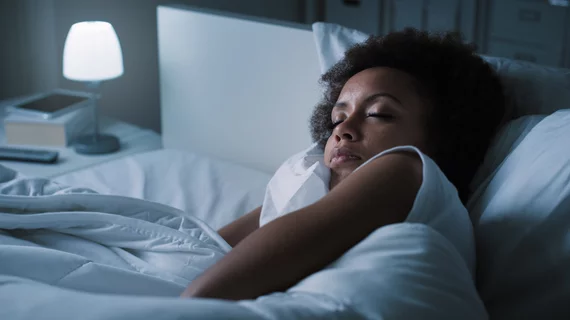Daylight saving time boosts malpractice severity, payouts
As most of the U.S. shifts to daylight saving time this week, a new study reveals that malpractice severity and payment decisions are higher in this part of the year than during standard time.
But payouts and severity don’t always align across the calendar, according to research in the Journal of Clinical Sleep Medicine. The first week of the time shift, when the change is most acute, doesn’t impact severity of malpractice incidents, but payouts given that week are elevated. This observation led Michael Scullin, PhD, an associate professor of psychology and neuroscience at Baylor University, and colleagues to wonder whether judges may also have “decreased empathy for mistakes” in the sleep-strained shift to daylight saving time.
“The spring daylight saving shift has long been connected to sleepiness, cardiovascular events, and driving accidents, but only recently have we begun to recognize that decision-making processes are also affected at the population level by the spring time shift,” Scullin says in a news release. “The current results add to this literature by showing that an area that one would hope would be immune—medical errors and malpractice litigation—is susceptible, too.”
According to the American Academy of Sleep Medicine, which publishes Journal of Clinical Sleep Medicine, standard time is optimal because it’s more aligned with the position of the sun in the sky and thus synced with the human circadian rhythm. Artificially bumping the clock forward an hour disrupts this rhythm, even beyond the initial transition week.
“In addition to the acute shift to daylight saving time, it is possible that several months of living under daylight saving time leads to accrued circadian misalignment, which then could affect medical errors and legal evaluations,” co-author Chenlu Gao, PhD, theorizes. “Our work joins numerous other studies that document the detrimental effects of spring daylight saving time transitions, and the collective evidence should encourage stakeholders and policymakers to reevaluate daylight saving time for the well-being of the general public.”
Results were based on an analysis of nearly 300,000 malpractice claims dating back three decades in the National Practitioner Data Bank. The shift to daylight savings, and the fact that some states don’t observe it, creates a natural experiment on the influence of mild sleep loss on malpractice incidents and judgements. Researchers looked at both the acute impacts of the time change in the one week before and after clocks “spring forward,” as well as the chronic impacts across the entire seven month DST period.
The real-world experiment follows similar lab-based studies in which participants randomly assigned to normal sleep or mildly restricted sleep were then asked to view medical error vignettes. Those who got less sleep were significantly more likely to award maximum compensation to patients in the hypotheticals. Due to the limitations in the latest real-world analysis, causality couldn’t be determined, but the authors speculated that stronger emotional reactions, either from judges or from patient families during settlement negotiation, could impact payout amounts.
“There are likely other possible explanations worth exploring in targeted studies. From a practical standpoint though, the consistency of results across laboratory and real-world observational studies emphasize the need to mitigate sleep loss in individuals tasked with making significant judgments or decisions,” the authors comment.

